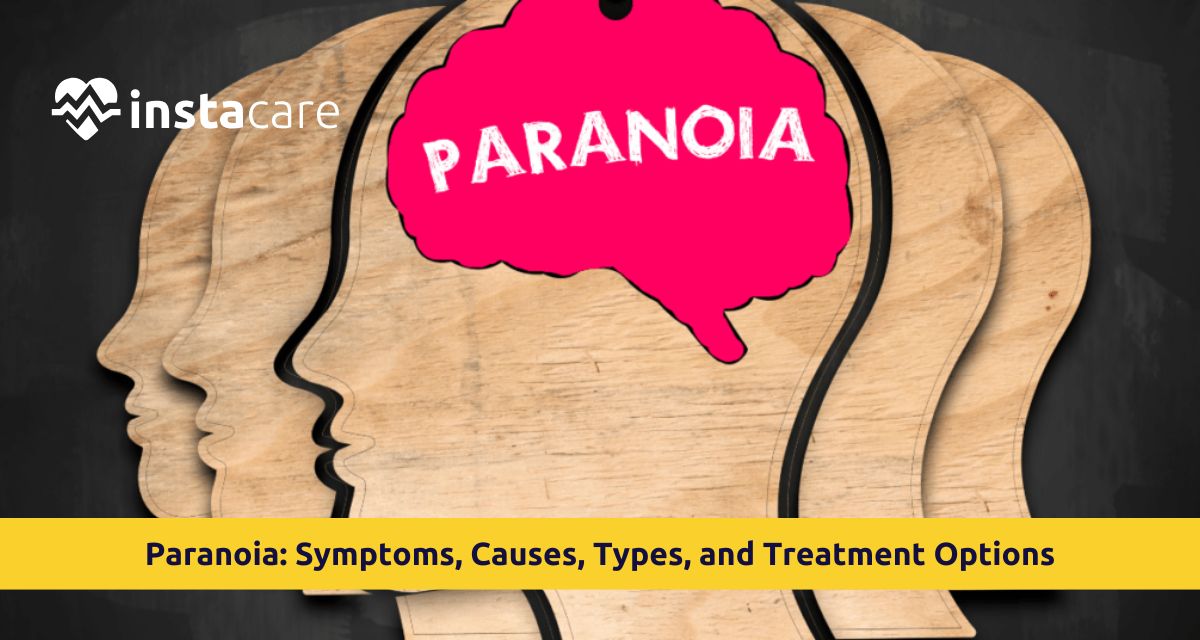What is Paranoia?
Various Types of Paranoia
- Paranoid Personality Disorder (PPD): Individuals with PPD are constantly suspicious, misinterpret other individuals' motives, and are vindictive.
- Paranoia of Schizophrenia: Good ol' coherent, well-structured delusions that other individuals are conspiring against them, maybe hallucinations.
- Delusional Disorder, Persecutory Type: Carefully thought out belief of being harassed, harmed, or followed with no concrete evidence.
- Drug-Induced Paranoia: Paranoid thinking as an effect of drug use or withdrawal.
Some Important Symptoms of Paranoia
- Chronic mistrust of others in the absence of objective evidence.
- Interpreting that other people are gossiping behind your back about you, criticizing you, or planning against you.
- Being always "on guard" or being constantly defensive.
- Perceiving friendly behaviors as threatening.
- Social withdrawal because of the fear of being harmed or betrayed.
- Being delusional-paranoid, i.e., in believing there are secret messages being sent to you.
- Not being able to trust people or establish close relationships.
What are Some Causes of Paranoia?
Mental Health Disorders
- Paranoid personality disorder: Mistrustfulness and suspiciousness.
- Paranoia in schizophrenia: Typically with fixed delusional thinking and hallucinations.
- Delusional disorder: Fixed, persistent false beliefs.
Neurological Disorders
- Substance Abuse: Amphetamines, cocaine, alcohol, or marijuana can cause paranoid thought.
- Trauma and Stress: Chronic stress, emotional abuse, or child neglect can contribute to suspicion and hypervigilance.
- Sleep Deprivation: Repeated sleep deprivation is capable of diminishing judgment and enhancing suspicious thinking.
- Other Mental Illnesses: Paranoid symptoms may on occasion be an aspect of anxiety disorders and depression.
Paranoia vs Anxiety
- Paranoia is only irrational suspicion and typically focal belief in other's hostile intent.
- Anxiety is diffuse with preoccupation about fear that something will happen in the future, not with preoccupation about specific suspicion.
- Paranoid delusional belief is closed to disconfirmation or counter-evidence.
- Anxiety will be secondary to stressors, but paranoia is fixed or chronic.
- Paranoia only is distinguished from anxiety so appropriate diagnosis and treatment can be made.
Diagnosis of Paranoia
- Detailed patient history, such as psychological history, history of drugs, and medical history.
- Delusional pattern of thought tests based on psychology.
- Removing the impact of substance or neurological disease.
- Discussion of long-term change of behavior.
- Healthy diagnosis supports the potential treatment of symptom and etiology.
Read More: What Are Various Signs of Mental Illness
Treatment Options for Paranoia
Psychotherapy
- Therapeutic relationship and training in coping skills is established through supportive therapy.
- Group therapy facilitates experience sharing and de-isolation.
Treatment of drugs
Lifestyle changes
- Adequate sleep and stress reduction as an essential aspect.
- Exclusion of alcohol, caffeine, and illegal drugs.
- Participation in an exercise regimen daily to optimize brain functioning.
- Development of social support systems.
- Prevention and Self-Help Over Overcoming paranoia
- Professional intervention is warranted, but it is possible to be symptom-free and enhance mental functioning.
- Educate yourself on paranoia and mental illness.
- Care for well to stay here and now and present in the moment.
- Develop communication skills in order not to miscommunicate.
- Stay away from situations or the media that agitate you.
- Stay socially active so as not to isolate.
- Self-knowledge and early intervention are the prevention keys to paranoia.
Impact of Paranoia in Relationships
- The two can be treated with couples therapy so that they can figure out the triggers and be trusted by each other.
- Trust and honesty are the building blocks.
- Boundary setting and reassurance can soothe relationship tension.
Paranoia and Delusions
Paranoia and Mental Health
Benefits of Early Treatment
- Prevent fixed delusions from becoming established.
- Enhance interpersonal relationships and socialization.
- Decrease suicidality or depression risk.
- Maximize response to treatment with drug and therapy.
Conclusion












